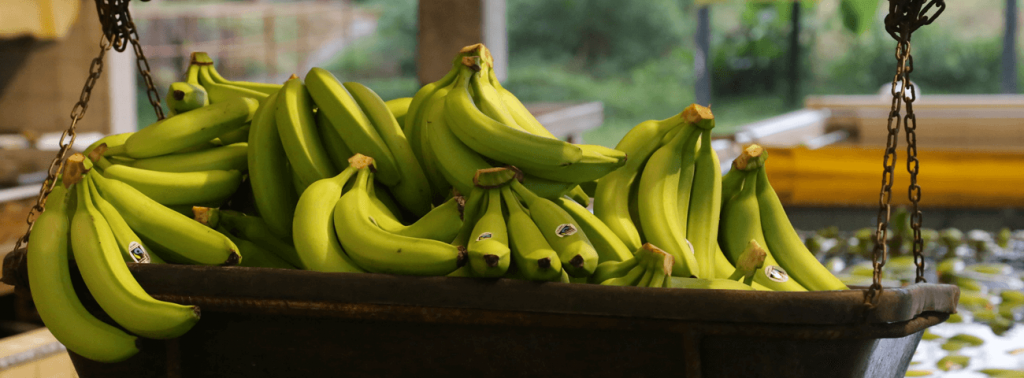This 15. April, National Banana Day, Fairtrade International is recognising Fairtrade banana producers from the Urabá region of Colombia, who have taken the #FairtradeTogether message to heart to tackle the coronavirus pandemic.
Bringing COVID-19 Testing to the Community
Sixteen banana companies are contributing US$55,000 of Fairtrade Premium money towards an emergency COVID-19 diagnostic test centre set up by the local university.
‘Flights have been suspended throughout the country and it takes around eight hours for samples to get from Urabá to Medellin by road,’ explains Carlos Trujillo, plantation manager at Grupo Agrosiete, one of the companies involved. ‘Altogether, it can take four to five days for the samples to be taken, transported the 500 km to Medellin, analysed and the results communicated back to the patients.’
‘This initiative could be a game-changer,’ he adds. ‘We can get the test results quicker, which will help us detect cases in the region faster, and so help limit the spread of the virus. If people test positive, they can be confined and looked after properly.’
The new testing facility is being coordinated by the region’s University State Business Companies Committee and involves not only Fairtrade banana producers, but eleven municipalities, religious groups, the Colombian Institute of Tropical Medicine and the private CES University. The consortium needs to raise more than US$200,000 – of which Fairtrade organisations have already committed more than a quarter.
‘As well as supporting the new diagnostic centre, banana trading companies are also funding equipment for intensive care units and the purchase of respirators for medical institutions in Urabá,’ says Carlos. ‘They have also donated bananas, pineapples and other food supplies to families who have no income in the past weeks. Our staff are very important to us, and we will take any measures we can take to protect them.’
Along with Fairtrade organisations the world over, banana growers are already implementing measures to protect workers including wearing masks, stopping production to carry out hand washing every two hours, regular temperature checks, enforcing two-metre social distancing, segregated transport and staggered meal times to avoid crowds. Soap, water and antibacterial gel are all available for workers.
‘Fairtrade has enabled us to increase workers’ awareness about the virus,’ says Carlos. ‘They are more prepared and have more information to face this challenge. As a Fairtrade organisation we are well used to organising training sessions, which means we’ve been able to reach out to workers’ families as well.’
